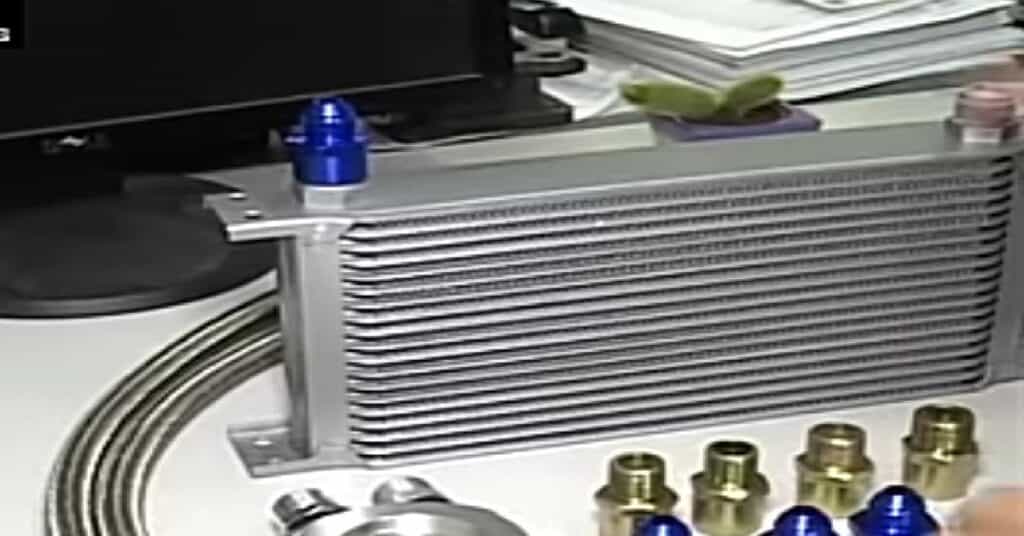Internal combustion engines naturally generate heat as it works, especially for long hours, so if nothing cooled, it would become too hot.
The function of the engine oil is to lubricate the necessary engine components to avoid friction.
The oil cooler cools the engine oil so it will not be too hot for the engine components. So if the oil cooler is clogged or malfunctioning, the engine will overheat.
The answer is yes. A bad oil cooler can cause engine overheating.
Coolers are designed to remove excess heat from lubricating oil in vehicles, machines, and machinery. Such coolers include water-oil or air-oil type heat exchangers.
There are different types of lubricants for different temperature ranges and operating conditions.
It should always be operated within the specified temperature range to ensure that the oil can protect the related mechanical equipment.
The oil will thicken if the temperature is too low, making it difficult to lubricate moving mechanical parts.
When oil is overheated, its viscosity will start to decrease, resulting in early component wear and eventual equipment failure.
The issue is that heat from the moving metal pieces is transferred to the lubricating oil, which is problematic.
At this time, adding an oil cooler to the lubricating oil circuit can control the temperature of the oil and keep it at the correct temperature.
Oil coolers can be air-cooled or water-cooled, depending on the nature of the application.
Different manufacturer manufactures a wide range of water-cooled “shell and tube” oil coolers for on/off-highway vehicles, construction, and related equipment for cooling heavy-duty applications such as torque converters, automatic transmissions, and engines.
The oil cooler is a kind of oil cooling equipment commonly used in hydraulic and lubrication systems.
The equipment can realize heat exchange between two fluid media with a certain temperature difference to reduce the oil temperature and ensure the system’s normal operation.
Oil coolers can be divided into air-cooled and water-cooled oil coolers according to different heat exchange media, mainly used to cool hydraulic and lubricating oil.
Oil coolers are widely used in plastic, construction, mining, automobile, steel, wind power, aerospace, and other industries.
Water-cooled oil coolers are divided into;
- tubular oil coolers
- plate oil coolers
Plate oil coolers are divided into removable plate oil coolers (removable plate heat exchangers) and brazing.
Welded plate oil coolers ( brazed plate heat exchangers ); air-cooled oil coolers are divided into:
- tube-fin type
- plate-fin type.
Functions Of Oil Cooler In Hydraulic System
Hydraulic systems and lubricating systems are important components of mechanical equipment.
The hydraulic system needs to maintain high pressure continuously when working, generating a lot of heat, and the oil temperature will rise after a long work.
Suppose the heat is not dissipated in time. In that case, the sealing components of the system will be aged and damaged, the oil’s viscosity will decrease as the oil temperature increases, and the oil pressure will not meet the functional requirements.
The oil temperature must be controlled within the specified range to ensure the safe and reliable operation of the unit.
Although the main reason for the increase in oil temperature of the lubrication system is different from that of the hydraulic system, it is also necessary to control the oil temperature within the specified range.
Engine Oil Cooler VS Radiator
1. Radiator is a cooling component, and the oil cooler is also a cooling component
2. Oil cooler cooled the engine oil while the radiator cooled the coolant (water)
3. Two of them can be classified as heat exchangers
4. Both the oil cooler and radiator are capable of causing engine overheating
5. Both of them work with an internal combustion engine.
Both of them are essential components for internal combustion engine heat dissipation. So the radiator and oil cooler play a significant role in the engine attaining an accurate temperature.

